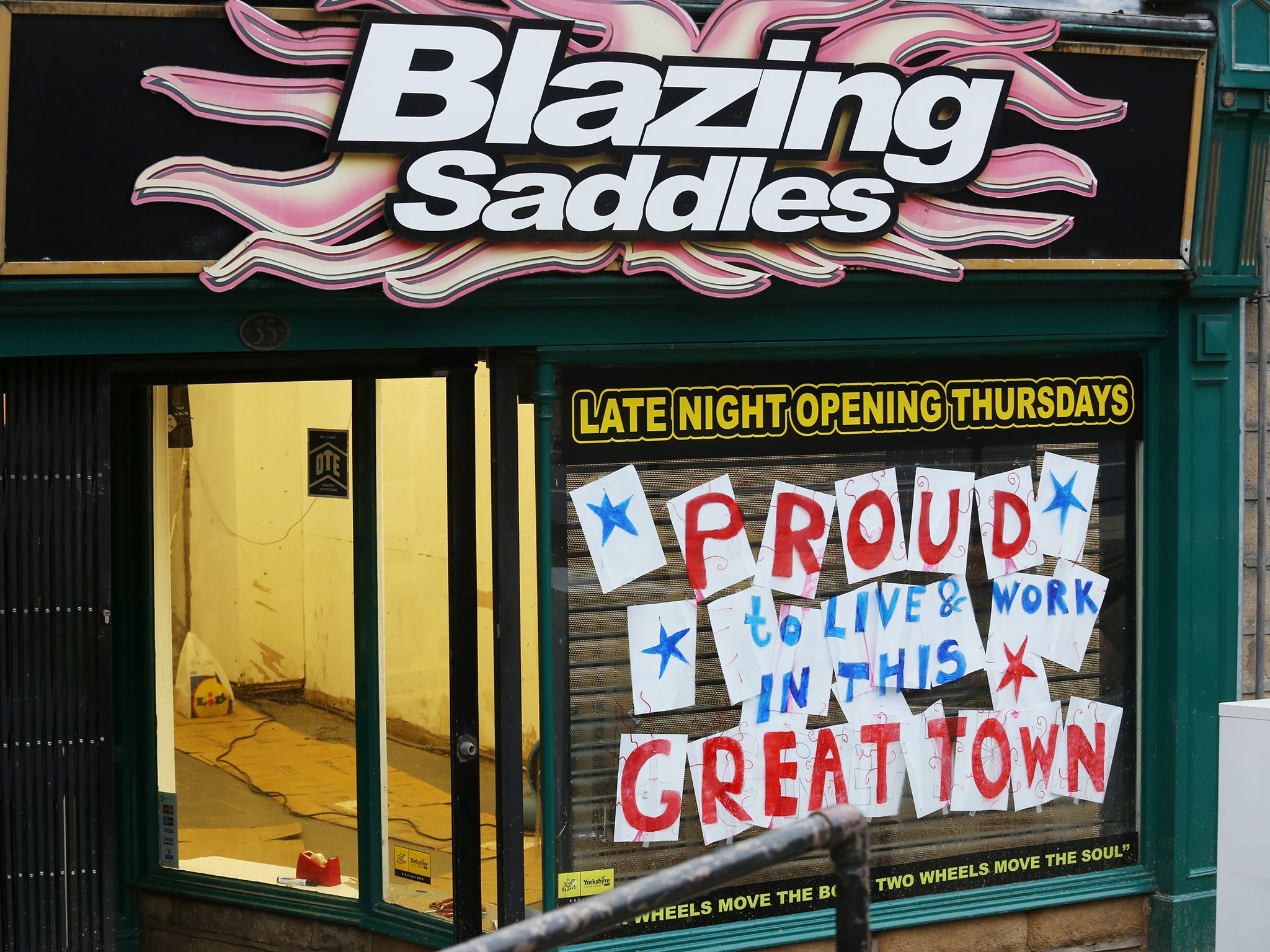Hebden Bridge flooding: How the West Yorkshire town rose to Mother Nature's challenge
In a warehouse lent by a scaffolding firm, three volunteers organised tons of donations, from toys to washing machines

Your support helps us to tell the story
From reproductive rights to climate change to Big Tech, The Independent is on the ground when the story is developing. Whether it's investigating the financials of Elon Musk's pro-Trump PAC or producing our latest documentary, 'The A Word', which shines a light on the American women fighting for reproductive rights, we know how important it is to parse out the facts from the messaging.
At such a critical moment in US history, we need reporters on the ground. Your donation allows us to keep sending journalists to speak to both sides of the story.
The Independent is trusted by Americans across the entire political spectrum. And unlike many other quality news outlets, we choose not to lock Americans out of our reporting and analysis with paywalls. We believe quality journalism should be available to everyone, paid for by those who can afford it.
Your support makes all the difference.Hebden Bridge reeks, a fortnight after the devastating Boxing Day flood, but mingled with mud are smells of sawdust and sealants. “Back Very Soon!” says a sign in a gutted upholsterer. “Hebden Rising!” claims the organic café. What is happening where I live is a quietly extraordinary tale of local and global citizenship.
While a bus floated down the main street, and the river swept away sheets of tarmac (a witness said they looked like sharks’ fins) the town hall became the hub of a fight back. There was no national appeal and no declared emergency. Government and nation were on holiday.
Food and donations arrived: 2,500 crumpets and the output of an entire curry house; a box of pregnancy tester kits and wild boar pâté. Soup kitchens opened. Muslim charities, a Sikh aid organisation and volunteers from an Israeli emergency team arrived: “We have come from helping Syrian refugees in Greece,” said Mickey Noam-Alon.
“The astounding thing was there was no overt leaderhip,” said Dai Larner, a trustee of the Hebden Bridge Community Association. “No one said: ‘You can’t do that’ – chaos to start with, but then it was inspiring.”
Flood victims became aid workers. Phil, an architect who didn’t want to give his surname, did what he could for his wrecked ground floor and went salvaging in his neighbours’ basements. “I put a request on Facebook. Within an hour we had 20 volunteers, dehumidifiers, two electricians – they worked non-stop.” His meter is now near the ceiling and he is thinking about the next time the waters come. “They used to call it the Greenwich of the north,” said Phil’s partner, Emma. “It will have to be the Venice.”
In a warehouse lent by a scaffolding firm, three volunteers organised tons of donations, from toys to washing machines. Jill Shaw, a foster carer, said: “The humility of people … We had to press them to take chocolates and sweets – they asked for cans of beans. It was Christmas! One couple walked a mile and half with a baby. All they wanted was one small pack of nappies. Everyone said: ‘Are you sure no one else’s need is greater than mine?’”
Perhaps this is the lesson of Hebden. In extraordinary circumstances, a strong society can rise with glorious solidarity. Its community groups, mixed population and alternative traditions served it well. No politician can claim credit (with the exception of those who joined the volunteers). The town and the community worked as towns and communities are supposed to work: rich and poor, needful and able together, in a triumph of altruism and decency.
Wouldn’t it be wonderful if our leaders began to think, as the volunteers will be thinking, even as you read this, not “How little can we get away with?” but “What more can we do?”
Join our commenting forum
Join thought-provoking conversations, follow other Independent readers and see their replies
Comments